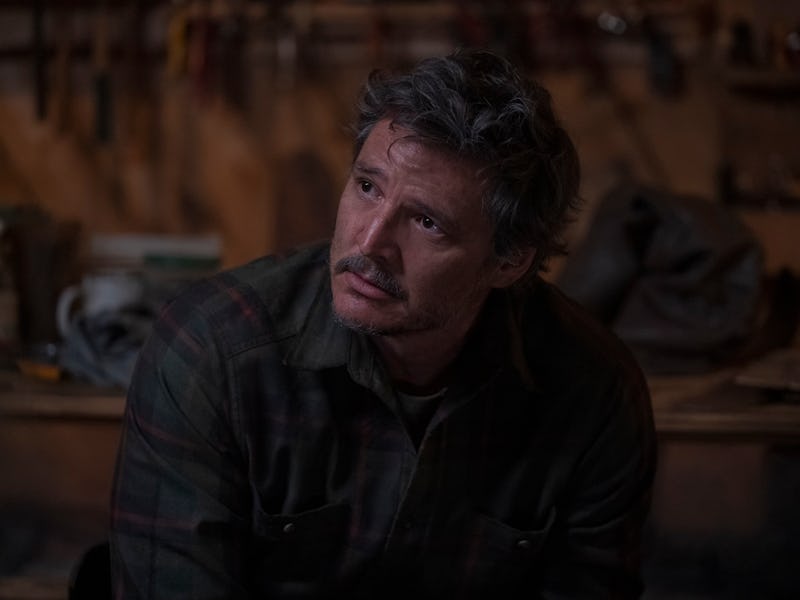The Last of Us Episode 6 Fixes One Classic Video Game Trope
Joel isn’t as indestructible as he once was.

Across its first six episodes, HBO’s The Last of Us has done an exceptional job of adapting the 2013 video game that inspired it.
The series has not only stayed strikingly faithful to the events of Naughty Dog’s original Last of Us, but it has also diverged from that game in ways that have often felt refreshing and deeply considered. Ultimately, though, it’s the strength of Pedro Pascal and Bella Ramsey’s lead performances as Joel and Ellie that provide The Last of Us with the heart and soul its story demands.
While the series’ sixth episode, titled "Kin,” is more leisurely than its previous installments, it features some of Joel and Ellie’s most emotionally vulnerable scenes to date. That’s especially true for Pascal’s Joel, who gets the chance in The Last of Us Episode 6 to permanently separate himself from his video game counterpart. In doing so, Pascal and writer Craig Mazin also prevent The Last of Us from engaging in one of the most overdone and frustrating video game tropes.
In The Last of Us Episode 6, Joel allows himself to be more vulnerable than he has in 20 years.
Early on in “Kin,” Joel finally reunites with his brother, Tommy (Gabriel Luna), when he and Ellie are brought to the Jackson, Wyoming settlement that Tommy now calls home. Later that same night, Tommy finds Joel hiding out in a repair shop while everyone else is busy watching a movie. During the conversation that follows, Joel not only tells Tommy about Ellie’s immunity but also opens up about how genuinely scared he is that he’s no longer capable of protecting her.
He references the moment in The Last of Us Episode 4 when Ellie saved him from one of the Kansas City rebels that ambushed them, and talks about how his older age has made his reflexes slower and partially dulled his killer instinct. The scene is, notably, an original creation.
In the Last of Us game, Joel does have a conversation with Tommy in which he tells him about Ellie’s immunity and asks him, much like he does in “Kin,” to replace him as her guide and protector. There is, however, no moment in 2013’s The Last of Us where Joel says that he’s afraid he won’t be able to take care of Ellie or admits that his old age has affected his survival skills in any way.
To be fair, it wouldn’t have made sense in the game if he had because Joel in the original Last of Us is, for the most part, practically indestructible.
Joel and Ellie nearly part ways in The Last of Us Episode 6.
Most AAA games, including The Last of Us and The Last of Us Part II, are comprised of gameplay sections that are full of enemies that you, the player, are meant to kill. Most video game protagonists, consequently, have superhuman levels of strength, stamina, and precision, and it’s not hard to see why. After all, if a game intends to make players kill a whole lot of unnamed enemies and NPCs, then it only makes sense for the characters they play as to be especially good at doing that very thing.
Joel Miller is no exception to that rule. In The Last of Us, he is basically invulnerable to damage or exhaustion. Throughout most of the game, he manages to shoot and stab his way through practically every swarm of enemies that is thrown at him. With the exception of two notable moments, Joel’s life also rarely feels like it is genuinely in danger in The Last of Us, which is probably why some players continue to look at the early events of its sequel through tightly squinted eyes.
To be clear, this isn’t a criticism of The Last of Us. It makes sense for the video game version of Joel to be an unmatched combatant because that helps make the moments when you play as him more fun. However, Joel’s astonishing toughness in The Last of Us does occasionally rob the game’s action sequences of some of their drama and stakes.
Gabriel Luna makes his welcome return as Tommy in The Last of Us Episode 6.
That’s why it would have hurt HBO’s The Last of Us to make Joel as infallible as the version of the character video game players know. The show’s action sequences and moments of conflict wouldn’t feel nearly as intense if viewers were always sure that Joel could handle whatever is thrown at him. It’s for that reason that his confession to Tommy in The Last of Us Episode 6 is as impactful as it is.
Over the course of The Last of Us’ initial episodes, viewers have seen Joel make mistakes, get tired, miss some of the shots he takes, and freeze in critical moments. These instances of weakness and vulnerability haven’t robbed Pedro Pascal’s Joel of the lethal edge that makes him such a formidable survivor, though. Instead, they’ve made him seem more like a living, breathing human being, rather than just a live-action incarnation of a player character.
His brief monologue in “Kin” not only further reinforces that aspect of Pascal’s Joel, but it also completes the character’s difficult journey from being a beloved video game hero to the lead of a prestige HBO TV show.
New episodes of The Last of Us air Sundays on HBO.